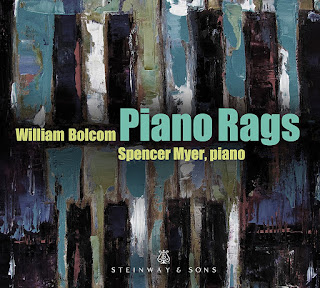Vladimir
Horowitz once said, “Good composers or bad composers, the best pianists were
all composers.” To a great extent this
is true (at least prior to today's era, when pianists are trained to win competitions, like racehorses wearing blinders): Mozart, Beethoven, Chopin, Liszt, Rachmaninoff – all were as famous as
pianists in their day as composers. Even
Horowitz dipped his toes into composing before fate compelled him to turn to
performing as his bread & butter.
Whether
Horowitz’s aphorism applies to conductors is open to debate. Several composers were, in their time, also
known as conductors: Mahler, Rachmaninoff - who was offered music directorship of
the Boston Symphony, and Boulez - who was associated with Cleveland for much
of his life. But the vast majority of
conductors have never composed – at least professionally.
Matthias Pintscher was
guest conductor of the Cleveland Orchestra for this past weekend’s concerts at
Severance Hall. He began the concert
with his own composition: Ex Nihilo, which roughly translates as Out of
Nothing. The work primarily concentrated
on texture and crescendo for its depiction of a transition from darkness to
light. As a conductor, Pintscher has a
clear beat, but uses his left hand more for theatrical gestures than for
controlling details within the orchestra.
Incidentally, he did not use a baton for his own piece but did for the
remaining works.
Following a
brief pause, during which the Hamburg Steinway was rolled into place, pianist Cédric
Tiberghien mounted the stage for Saint-Saëns’ Piano
Concerto No. 5, popularly known as the “Egyptian”. The source of the nick-name is that the work
was mostly composed in Egypt, and that the second movement makes use of some
exotic modes and scales that are associated with Middle-Eastern music. The concerto is primarily lyrical, although
the finale has moments of virtuosity.
Tiberghien offered a performance that was technically immaculate, musically
poised, and beautifully colored – particularly in the central movement. The crisp and almost cool virtuosity of the
finale brought the house down and the audience’s response was rewarded with an
encore, Debussy’s The Submerged
Cathedral – appropriately enough as the second half of the concert would
feature another “water piece” by a French composer. Tiberghien’s weighting of chords and use of
the pedal were exquisite.
Following
intermission, Pintscher returned to lead the orchestra in Schoenberg’s Chamber
Symphony No. 2. The work is a bit
more accessible than his fully atonal works, but often the tonal center is
difficult to discern. Pintscher led the
work with a clear sense of direction.

